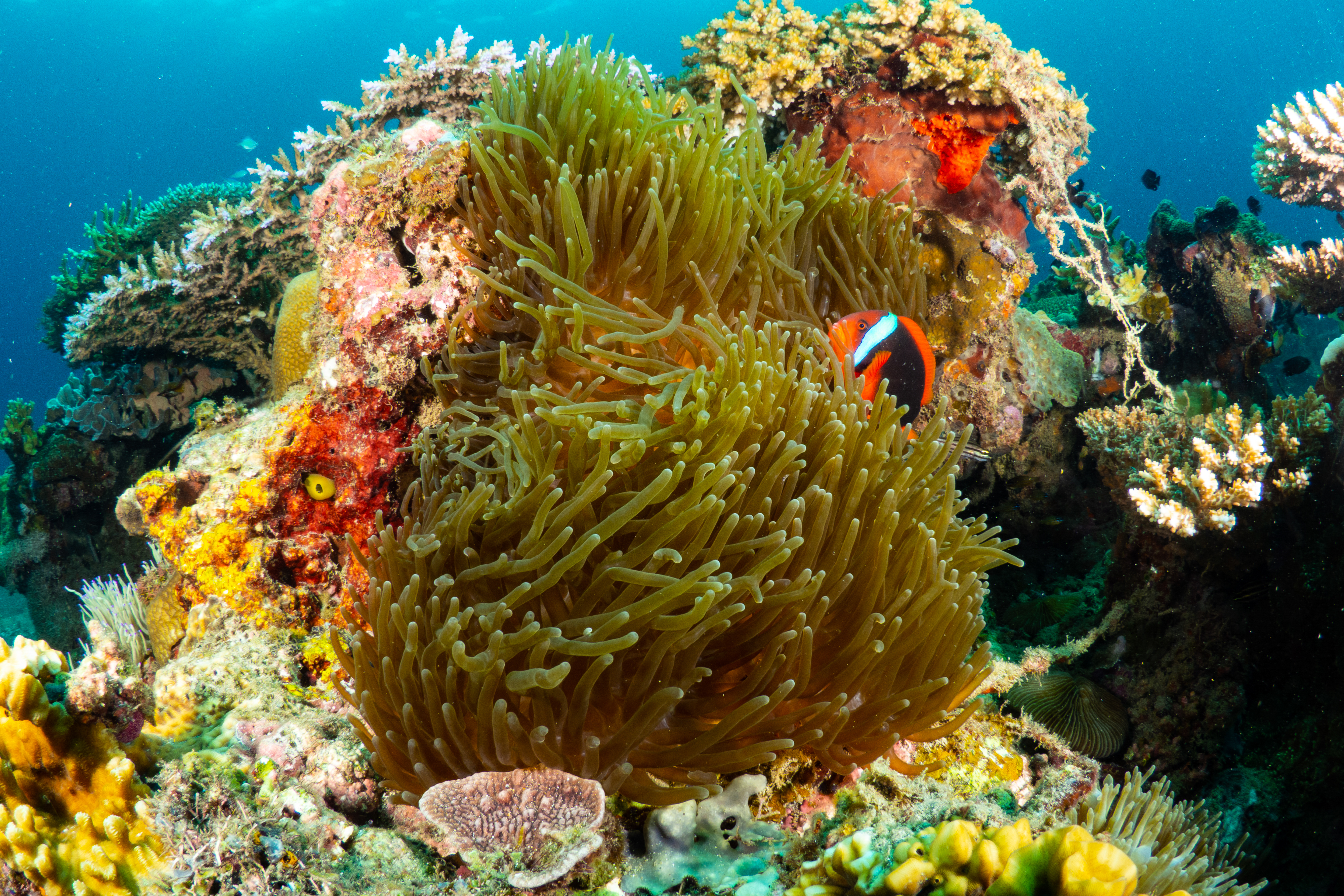Panaon Island declared a Protected Seascape, supporting marine life and coastal communities.

A Media Snippet accompanying this announcement is available by clicking on this link.
MANILA, Philippines, Aug. 29, 2025 (GLOBE NEWSWIRE) -- Today, the Philippines officially declared the waters surrounding Panaon Island a Protected Seascape, preserving some of the most vibrant and biodiverse coral reefs on the planet. The protected area covers more than 60,000 hectares of ocean, supporting local livelihoods, strengthening the country's resilience to climate change, and moving the Philippines closer to its commitment to protect 30% of its land and waters by 2030.
"Protecting the Panaon Seascape is a global achievement in conserving a unique and vital ecosystem, while also securing the well-being of present and future generations," said Von Hernandez, Oceana's Vice President in the Philippines. "This is one of the rare places where coral reefs remain in excellent condition, and we now have a chance to keep them that way. This policy milestone defends marine biodiversity, enhances food security, and fights poverty."
Located in Southern Leyte within the Coral Triangle, Panaon Island has been globally recognized by the 50 Reefs Initiative, supported by Bloomberg Philanthropies, as one of only 50 reefs worldwide most likely to survive the impacts of climate change. The Philippines' coral reefs have been steadily declining over the last 40 years. But in 2020, an Oceana-led expedition found Panaon Island was a unique exception with coral cover reaching three times the national average.
Over the course of the 21-day expedition, Oceana documented a wealth of marine life including whale sharks, sea turtles, and endangered Philippine ducks. The surrounding mangroves and seagrasses, which support food security, protect against storm surges, and store climate-saving blue carbon, were also in good condition. But alongside the signs of abundance, the team found troubling evidence of overfishing, destructive fishing, and plastic pollution.
"Panaon is situated in an area known as a vital corridor for marine mammals. Its waters are teeming with life and provide important breeding and nursery grounds for fish, allowing marine life and people to thrive," said Nikka Oquias, Oceana's Marine Protected Area Campaign Lead. "With Panaon Island's designation as a national protected area, communities and resource managers now have the needed legal framework and resources to strengthen the management and protection of this area. The law also contains a site-specific provision that requires the enactment of guidelines to regulate vessel speed and protect the large marine mammals frequently transiting the area."
The protected seascape integrates marine conservation with sustainable human activities that balance socio-economic development with conservation efforts. Oceana was key in consulting the local communities and worked alongside them to present these scientific findings to the Philippine government. The new law requires the development of a comprehensive management plan, created in partnership with local stakeholders, scientists, and government agencies to ensure that conservation efforts yield tangible benefits for both people and nature.
"Protecting the seas around Panaon Island helps us fishers greatly because, finally, there will be regular monitoring of our waters. This will likely increase our fish catch and boost our income since destructive fishing practices - especially from outsiders - will be controlled," shared Valdemar Mercado Jr., a fisher and village leader in Benit, San Ricardo town.
The oceans cover more than 70% of our planet, yet only about 8% of them are currently protected, and far less are effectively protected. "The Philippines' protection of Panaon Island's waters and reefs offers a powerful example for how governments can turn commitments into real action," said Antha Williams, who leads the Environment Program at Bloomberg Philanthropies. "By safeguarding one of the world's most climate-resilient reef ecosystems, the country is supporting coastal livelihoods and making vital progress toward its 30x30 target. We're proud to support efforts like the 50 Reefs Initiative, which make this progress possible and help shine light on unique habitats in need of preservation."
"We look forward to working with local stakeholders to ensure that the Panaon Island Protected Seascape is properly protected for generations to come. Empowering communities to manage their seas sustainably should be part of the nation's blueprint against poverty and hunger," added Hernandez.
Photos and b-roll from Oceana's expedition can be found here.
About Oceana
Oceana is the largest international advocacy organization dedicated solely to ocean conservation. Oceana is rebuilding abundant and biodiverse oceans by winning science-based policies in countries that control one-quarter of the world's wild fish catch. With more than 325 victories that stop overfishing, habitat destruction, oil and plastic pollution, and the killing of threatened species like turtles, whales, and sharks, Oceana's campaigns are delivering results. A restored ocean means that 1 billion people can enjoy a healthy seafood meal every day, forever. Together, we can save the oceans and help feed the world. Visit?Oceana.org?to learn more.
About Bloomberg Ocean Initiative
The Bloomberg Ocean Initiative is Bloomberg Philanthropies' effort to protect the world's ocean from climate change, overfishing, and pollution threats. Since 2014, Bloomberg Philanthropies has invested $375 million to restore and protect critical ocean ecosystems to support the global goal of protecting 30% of the world's ocean by 2030. The Bloomberg Ocean Initiative supports local and global partners in advocating for data-driven solutions, community involvement, and policy change that can help safeguard marine ecosystems, including coral reefs, and the billions of people who depend on them. To date, these efforts have helped pass over 100 new policies at the local and national level that have strengthened the protection of over 11 million square miles of ocean - nearly three times the area of the United States. Learn more here.
Contacts: Anna Baxter, abaxter@oceana.org
Joyce Sierra, jsierra@oceana.org
Photos accompanying this announcement are available at:
https://www.globenewswire.com/NewsRoom/AttachmentNg/e9ff9465-5f7d-4c5e-a000-580bdfaf385e
https://www.globenewswire.com/NewsRoom/AttachmentNg/059c6e60-e3b6-4e0b-8cd3-2ac904446281

